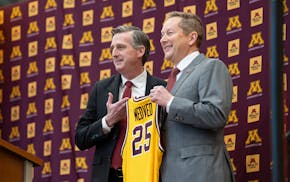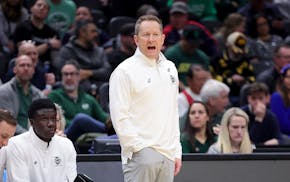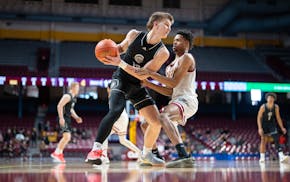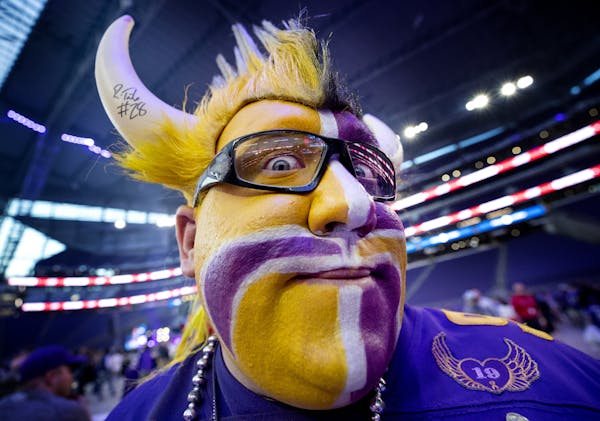The Vikings have a roster that is peppered with star power and built to contend for a Super Bowl. That doesn't come cheap.
The Vikings are tied with three other teams with an NFL-leading six players under contract who will carry a cap number of $10 million or higher this season, according to www.overthecap.com.
Eight Vikings players are ranked among the top 10 leaguewide at their respective positions in average salary per season, led by quarterback Kirk Cousins' record contract that guarantees him an annual salary of $28 million.
That list doesn't include linebacker Anthony Barr, who is still operating on his rookie contract but is set to earn $12.3 million on his fifth-year option, which would make him the highest-paid 4-3 outside linebacker in the NFL. The Vikings are hoping to sign him to a new deal this offseason.
Rob Brzezinski, the team's capologist, has done a masterful job so far of crunching numbers and nimbly performing financial gymnastics in order to sign Cousins and free agent defensive tackle Sheldon Richardson while also keeping the team's core intact by rewarding those players with lucrative deals in recent years.
The salary cap provides a threshold on spending though, and with the NFL draft under way, the mission of General Manager Rick Spielman seems pretty clear-cut.
Find productive cheap labor. Relatively speaking, of course.
That process began Thursday night with a mild surprise in Round 1. The Vikings passed on selecting an offensive lineman with the 30th overall pick, opting instead to draft Central Florida cornerback Mike Hughes.
Hughes' profile included a few off-the-field red flags, but Spielman said the organization felt completely comfortable with Hughes after vetting him.
Continuing to build the offensive line should be a top priority starting in round two Friday, but cornerback was a need as well and Mike Zimmer gets another piece for his defense.
"The way our [roster] is built right now, we have two tiers," Spielman said. "We have a pretty expensive tier in your starters, but you can't have that expensive of a tier in your backups. So you have to have guys that can economically fit in the cap as your backups."
That requires Spielman to strike gold on as many of his draft picks this weekend — and the next few drafts — as possible. That should be his goal every draft, obviously, but financial constraints set by high-dollar contracts for their established stars means Spielman can't afford to swing-and-miss on too many of his draft picks.
A team's quality of depth often determines whether a season is successful or goes off the rails. The Vikings need to supplement their roster with contributors playing on their first contract who might eventually represent that next wave of players who earn big paydays.
"Every year is a big draft," Spielman said, "but the more heavier or front-loaded our roster gets with those big contracts, the more important the backups or the role players that you're hoping will develop into starters make a significant difference. If you do get one of your top-tier guys that you paid a lot of money to hurt, there isn't another high expensive player behind him."
Spielman and Brzezinski began maneuvering for this anticipated wave of high-priced deals with their own players a few years ago. The organization opted not to re-sign a handful of veterans who cost more financially than players on rookie deals. That cap flexibility allowed them to re-sign key players (Everson Griffen, Harrison Smith, Xavier Rhodes, etc.) before they became free agents.
Like every general manager, Spielman has a draft ledger that includes successes and failures. Trader Rick's reputation for amassing as many picks as possible is based on common sense. More picks gives him more chances to get it right. A large draft class also potentially softens the blow when he misses.
The Vikings are built to win now. This is their window. But that doesn't make the draft any less important. Especially with the hefty contracts the organization has handed out in the last few years. The Vikings need players at a much lower pay scale to contribute in a meaningful way, too.
Chip Scoggins • Chip Scoggins@startribune.com
Scoggins: Williams Arena needs to get a piece of its history back

Scoggins: What you think you know about Chris Finch isn't close to who he truly is

Scoggins: Hiring of Medved proves Coyle is serious about fixing a problem

Scoggins: Medved's homecoming signals new beginning for program fighting for footing


